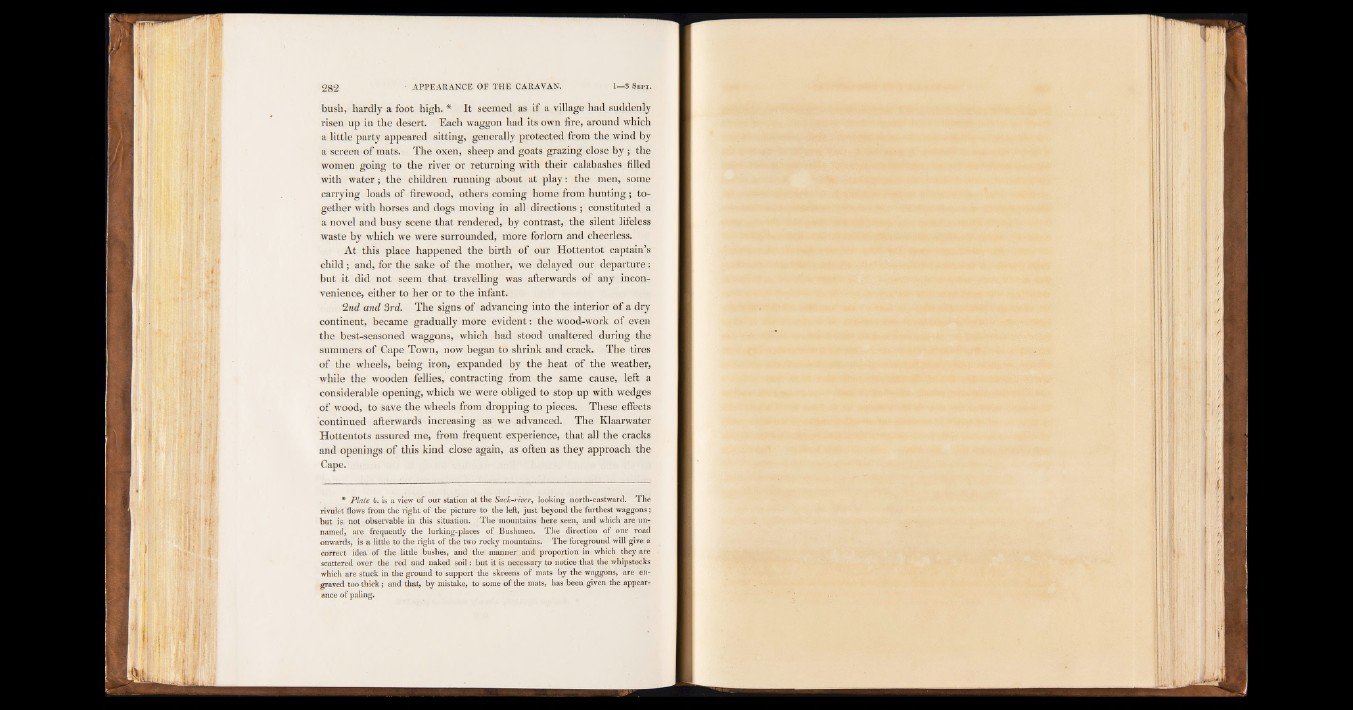
bush, hardly a foot high. * It seemed as if a village had suddenly
risen up in the desert. Each waggon had its own fire, around which
a little party appeared sitting, generally protected from the wind by
a screen of mats. The oxen, sheep and goats grazing close by ; the
women going to the river or returning with their calabashes filled
with water; the children running about at play: the men, some
carrying loads of firewood, others coming home from hunting; together
with horses and dogs moving in all directions ; constituted a
a novel and busy scene that rendered, by contrast, the silent lifeless
waste by which we were surrounded, more forlorn and cheerless.
At this place happened the birth of our Hottentot captain’s
child; and, for the sake of the mother, we delayed our departure:
but it did not seem that travelling was afterwards of any inconvenience,
either to her or to the infant.
2nd and 3rd. The signs of advancing into the interior of a dry
continent, became gradually more evident: the wood-work of even
the best-seasoned waggons, which had stood unaltered during the
summers of Cape Town, now began to shrink and crack. The tires
of the wheels, being iron, expanded by the heat of the weather,
while the wooden fellies, contracting from the same cause, left a
considerable opening, which we were obliged to stop up with wedges
of wood, to save the wheels from dropping to pieces. These effects
continued afterwards increasing as we advanced. The Klaarwater
Hottentots assured me, from frequent experience, that all the cracks
and openings of this kind close again, as often as they approach the
Cape.
* Plate 4. is a view of our station at the Sack-river, looking north-eastward. The
rivulet flows from the right of the picture to the left, just beyond the furthest waggons;
but is not observable in this situation. The mountains here seen, and which are unnamed,
are frequently the lurking-places of Bushmen. The direction of our road
onwards, is a little to the right of the two rocky mountains. The foreground will give a
correct idea of the little bushes, and the manner and proportion in which they are
scattered over the red and naked soil: but it is necessary to notice that the whipstocks
which are stuck in the ground to support the skreens of mats by the waggons, are engraved
too thick; and that, by mistake, to some of the mats, has been given the appearance
of paling.
£